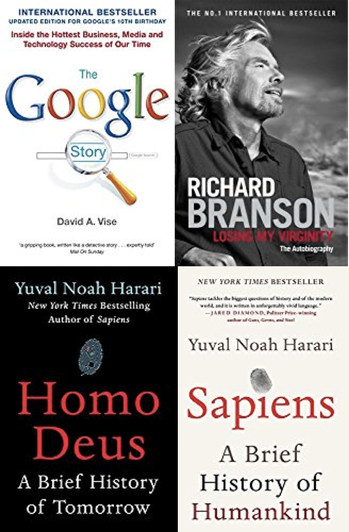What does the reader need to know, that is not included in your bio?
I was born in Poland and had a unique opportunity to live through the times of huge transformation of my country, following a collapse of communism. We had to adopt quickly to a new reality, which often happened through ‘test and learn’ experience. I believe it is thanks to this experience that I am a risk taker, that I find opportunities where others see challenges and can intuitively spot the right trends and quickly foresee the consequences. I enjoy creating new things and solutions and embarking on new adventures.
How did you become one of the most influential people for financial and fintech topics on the web? What role does “The Heart Warsaw” play?
I have been driving hands-on digital transformation in the financial services industry for 20 years, always fascinated about the impact of technology has on our lives, always challenging the status quo to seek better solutions. So as a practitioner who acts as a catalyst between business and technology I share with my audience many practical tips and real-life examples.
My network is very important to me as I believe that we can learn a lot from each other. Technology is driving incredible speed of change in today’s world and we cannot be in all places and test all solutions. Social platforms, networking groups (eg. InsTech London, FemTech Leaders, Tech London Advocates to name a few) and one to one interviews, are all great ways to learn. Last but not least finding the right platforms to connect with your audience is important. The Heart Warsaw, the European hub for corporate and startup cooperation, where I have been leading the Fintech Program played an important role in my journey to become an influencer as it provided me with a solid platform for generating, sharing and promoting interesting and relevant content.
You focus on the financial and insurance industry. How do you estimate the state of the industry?
Financial Services are going through an interesting time of disruption and innovation. The Insurance industry was lagging behind banking for years but has been catching up recently. Explosion and convergence of many new technologies creates huge opportunities for innovating, pioneering new products and solutions, enhancing and automating processes, building smarter and more efficient ways to engage with consumers. Take Artificial Intelligence as an example. It enables business to move beyond just historical data to analyse and predict future trends, doing it smarter and faster than any person could do. Thanks to AI the Insurance sector for example is able to move its focus to prevention and in that way better manages risk.
What we have experienced in the last couple of years incumbents finally opening up to collaboration with startups. I read recently in the WEF report on disruptive potential in the financial sector that Fintechs have not changed the competitive landscape, meaning they failed to take the leading position in the sector but they definitely changed the basis of competition in financial services. The small and nimble startups changed the pace of innovation, proving to incumbents that things can be done better and smarter way to meet customer expectations. What Fintechs struggle with is to acquire a critical mass of customers to turn their models into profitable business. This is where cooperation can bring more benefits than competition could.
What do you think are the opportunities incumbents can take from digital transformation? What are the biggest hurdles in your opinion?
Firstly, I do not think that digital transformation is a choice anymore. Those companies with no strategy for the digital age will fail. So this is not an opportunity but an imperative! The best route to get there, however, can vary and this is where incumbents can be smart and use digital transformation to their advantage.
There are some strategic decisions to be taken. eg. how many solutions do we want to develop in house and how many can we offer via partnership with startups (whether buying or investing in the solution). I can give an example of N26 challenger bank and Transferwise. The bank could develop its own remittance business but that would mean more time, investment and bigger risks. Yet, they wanted to meet customer needs. So they partnered with one of the leading remittance startups forming a very successful partnership. Win-win to all.
A similar strategy can be observed by Kabbage (online lender for small business) partnering with most of the leading large banks in US.
Digital transformation is obviously not free of challenges. Where I most often see it fail is due to three reasons:
- Lack of strategy and clear business objective;
- Insufficient resources;
- People
Without clear business objective, the chances are that business will dilute efforts engaging in many projects and many directions without obtaining real benefits. I had a conversation with one of the big Insurers recently. They told me: ‘we have secured some budget for digital transformation and by observing other Insurers we think whether we should set up an incubator for startups. Or possibly should we buy one of the startups? Or should we go down another route?’. In my mind their questions were focusing prematurely on tactics to meet an objective without first clearly defining that objective. Digital transformation cannot be successful without sufficient resources – be it investment or manpower – being allocated. And finally, the project needs to have support from the top management – it should foster a culture of innovation in the organisation, where employees are encouraged to test and learn, and are allowed to learn from failures and hence gain valuable new experience. It is also worth investing in an experienced change leader who can lead the organisation through the process as digital transformation impacts all parts of the business and all functions. Thus, if not done in the right way this can severely disrupt business.
In the area of fintech, which insurtech company has impressed you the most and why?
I am a huge fan of Sidly – a Polish startup that provides a professional wearable medical device to monitor key life functions. I love that this company is solving a real problem by providing solution for carers to monitor their dependents (eg. elderly parent with dementia) from distance, without need to compromise their life. I also like the business model of Sidly which focuses on hardware, software and commercialization of collected data.
Another startup I came across recently and really like is the digital Healthcare app Babylon Health. This UK based startup empowers specialists with cutting edge AI powered technology so you can find the best specialist to provide you with medical advice. I have my fingers crossed for their success.
Finally, I would mention BuzzVault. Built on blockchain technology (of which I am great fan!), it uses video technology for survey and provides smart protection for the home contents. Easy and useful.
In conversation behind closed doors I hear a lot of bank c-suits say, that it’s just not in the DNA of the industry to take high risks and invest heavily in possibly disruptive technologies and business models. Does the financial industry have to take more risks nowadays and how can they overcome cultural barriers?
I hear the same in my conversations with Board members. Show me the ROI and I’ll invest, they say. The truth is however that you cannot innovate unless you take risks. And I think the industry has started to realize they need to change because the pressure from other players, including those from outside the industry, is huge. If you do not innovate and change, someone else will come and eat your lunch. Take examples of Uber, AirBnB or big tech players Google, Amazon, Apple and also Baidu, Tencent, Alibaba. They are not shy to disrupt any industry, including financial services.
What are your Top 5 pieces of advice for the finance and insurance c-suite who want to take action?
- Start with clearly understanding the problems you are solving before you rush to choose the solutions
- Champion open innovation in the company
- Ensure the Board understands technology and the impact of it on customers and business
- Collaborate and learn from other’s mistakes
- Take action
What are your 5 Don’ts a bank and insurer should definitely not do today?
- Maintaining status quo is not an option
- Don’t ignore technology trends because customers won’t and they will go where their needs will be met.
- Allow your employees to test and fail. This is part of the learning curve.
- Don’t be arrogant in thinking barriers for entry to the industry are too high for other competitors. Disruption is happening already.
- Do not reject collaboration
David Vise: “The Google Story” in German, in English.
Richard Branson: “Loosing my Virginity” in German, in English.
Yuval Noah Harari: “Spaien” in German, in English & “Homo Deus” in German, in English.
For Fintech and Insurtech enthusiasts I recommend to following key thought leaders such as Chris Skinner, David Birch, Jim Marous. The book I would recommend is ‘The Fintech Book’ by Susanne Chishti: a collection of articles written by over 200 thought leaders sharing their views of fintech. Soon there will also be InsurTech, WealthTech and RegTech books published and I am looking forward to those. I was honoured to become a co-author of InsurTech one.
Susanne Chishti: “The Fintech Book” (Germany, in the USA)

At the end three more personal questions: What are your most favorite books? Which books are must-reads for anybody working in the digital industry and fintech and insurtech ecosystem or working on the digital transformation of a traditional company?
I read a lot and would struggle to choose a single favorite. I like business stories (eg. ‘The Google story’ by David Vise or ‘Loosing my Virginity’ by Richard Branson). You can learn a lot by example from others.
Most recently I have read ‘Sapiens’ and ‘Homo Deus’ by Yuval Noah Harari. The first book talks about human history, busting many myths and explaining why people act today the way they do. And the second book focuses on impact of computer science, ethics, biology on future and where humankind is heading. Both are truly fascinating!
David Vise: “The Google Story” in German, in English.
Richard Branson: “Loosing my Virginity” in German, in English.
Yuval Noah Harari: “Spaien” in German, in English & “Homo Deus” in German, in English.
For Fintech and Insurtech enthusiasts I recommend to following key thought leaders such as Chris Skinner, David Birch, Jim Marous. The book I would recommend is ‘The Fintech Book’ by Susanne Chishti: a collection of articles written by over 200 thought leaders sharing their views of fintech. Soon there will also be InsurTech, WealthTech and RegTech books published and I am looking forward to those. I was honoured to become a co-author of InsurTech one.
Susanne Chishti: “The Fintech Book” (Germany, in the USA)

Do you have any tech gadgets that make your day-to-day life easier or more fun?
I use Nest, which helps to monitor and manage my home events. For example, where I am away it automatically sets heating to minimum and also automatically sets it back when it recognizes I am back in the country.
I also use Alexa but wish I had more time to load new skills on it.
Finally, I experiment with many fitness apps but have not made my mind up as yet which one I prefer.
Nest(Germany, in the USA)
Alexa (Germany, in the USA)
What would you advise young people that are thinking to enter the insurance industry?
Choosing my career today I would not focus on an industry I’d like to work for but rather the kinds of problems would I like to solve. I think having a clear purpose allows one to maintain motivation and assess progress. I also believe that hard work and fun belong in the same sentence, so chose a job you love!
Biography on you:
Dorota Zimnoch is ranked one of the Top50 fintech and insurtech Influencers. As a founder of Zing Business Consulting, Ms. Zimnoch advises corporate boards and focuses on business transformations and turning digital disruption into market-winning solutions aligned to effective and high-quality implementation. She gained her experience working with leading financial brands such as Citi, AIG, Alico, MetLife, and 4finance, as well as many startups. Ms. Zimnoch is also a Strategic Adviser at ‘The Heart’ supporting corporate and startup collaboration. She is an active member of the fintech community in London and internationally. Her recent topics of interests include AI and blockchain, in which fields she is a guest speaker at globally focused conferences. Last but not least, Ms Zimnoch is the mother of an adult son, a passionate dancer and jazz fan. She can be reached at dorota@zingbc.co.uk.








